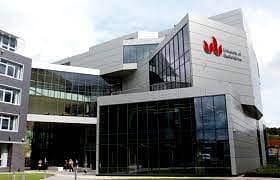The course combines a thorough understanding of sport and exercise science with knowledge of the range of roles and settings within which a coach works. The combination of theoretical, vocational and practical elements helps you gain a comprehensive understanding of the sport science that underpins coaching practice.
The course is accredited by the British Association of Sport and Exercise Science (BASES) and, as we are a Higher Education Partner of the Chartered Institute for the Management of Sport and Physical Activity (CIMSPA), it is also closely aligned to the relevant professional standards you need to follow a career in the sports sector.
Why choose this course?
Study a challenging and enjoyable course which prepares you for employment – 90% of our students are in work or study six months after finishing
Learn in a high-performance environment that combines scientific knowledge with sports performance
Explore coaching with internationally recognised staff in the fields of science, exercise and sport, who draw on their experience in organisations such as The Football Association and Sport England
Benefit from up-to-the-minute facilities including six BASES-accredited sport and exercise science laboratories; our Human Performance Centre; two molecular and cellular physiology labs; and a sports therapy and rehabilitation centre with a sports injury clinic
Our links with sports partners – including many local clubs and teams - offer you practical coaching experience at all levels
You have the chance to specialise, with optional study routes in your second and third years
There is the opportunity to undertake a fee-free, one-year sandwich placement in industry (see below)
If you need to step up into higher education, start with a Foundation Year (see below), which guarantees you a place on the degree course
Unit Information - What will I learn?
Units
Academic Writing Skills (SPO048-1) Compulsory
Anatomy And Biomechanics (SPO049-1) Compulsory
Applied Exercise Practice (SPO082-1) Compulsory
Developing The Coaching Environment And Practice (SPO068-1) Compulsory
Human Physiology (SPO084-1) Compulsory
Introduction To Research Methods (SPO052-1) Compulsory
Introduction To Sport And Exercise Psychology (SPO019-1) Compulsory
Performance Analysis For Coaches (SPO089-1) Compulsory
Coaching For Development (SPO081-2) Compulsory
Coaching: Developing The Performer (SPO073-2) Compulsory
Dissertation Preparation (SPO095-2) Compulsory
Motor Performance And Learning (SPO027-2) Compulsory
Physiology Of Exercise And Adaptation (SPO098-2) Compulsory
Quantitative Research Methods (SPO099-2) Compulsory
Social Psychology Of Sport (SPO026-2) Compulsory
Biomechanics (SPO032-2) Optional
Performance Analysis (Player And Match) (SPO035-2) Optional
Applied Exercise Physiology (SPO033-3) Compulsory
Coaching In Context (SPO071-3) Compulsory
Dissertation For Sport Science And Physical Activity (SPO051-3) Compulsory
Performance Coaching (SPO058-3) Compulsory
Work Placement Project (SPO057-3) Compulsory
Applied Biomechanics (SPO014-3) Optional
Applied Sport And Exercise Psychology (SPO010-3) Optional
Sports Injuries (SPO013-3) Optional
Work Experience For Sport Science And Coaching (SPO073-3) Optional
How will I be assessed?
The strategies adopted for learning and teaching in BSc (Hons) Sport Science and Coaching reflect the diverse nature of the subject. The course employs practical activities in the lab and field, lead lectures, seminar discussions, workshops, on-line activities, and individual and small group tutorials. Practical sessions or discussion seminars will enable you to apply theories taught during lectures and gain a deeper understanding of their use and contexts. Laboratory work and computer-based learning activities will provide opportunities to practise and develop research skills and techniques in preparation for conducting your own research and facilitate your understanding of research-based literature. You will examine case studies and receive invited lectures from professionals in the field to learn from their expertise and reflect upon how your learning can be transferred into real life workplace settings. Throughout the degree, small group sessions require you to engage in problem-solving exercises and analytical discussions with your peers. You will learn to locate, evaluate and synthesise information from a variety of sources and be given opportunities to learn, practise, and develop communication and presentation skills, including a topic specifically designed to develop professional skills used by healthcare professionals.
